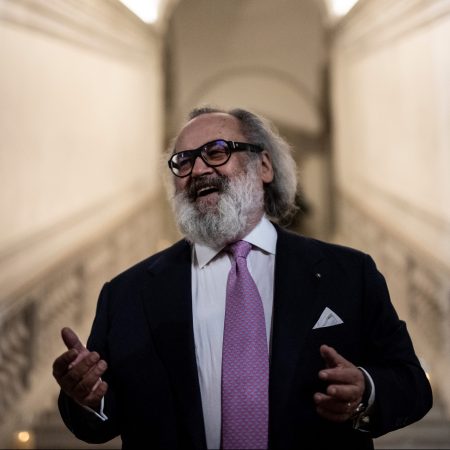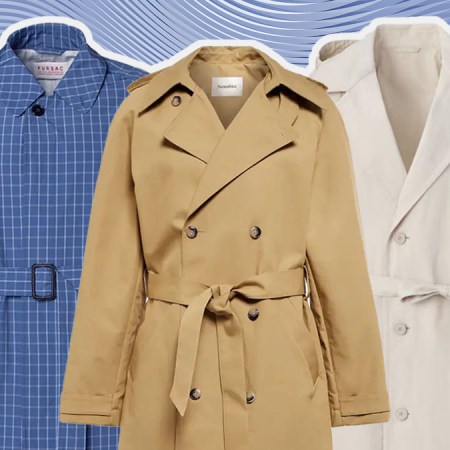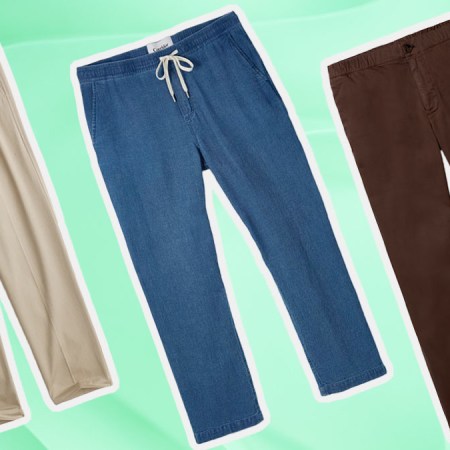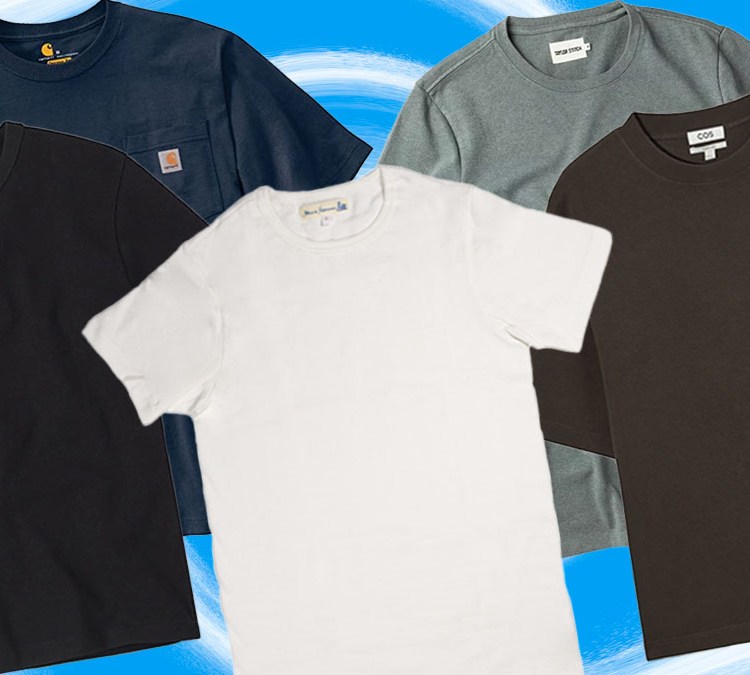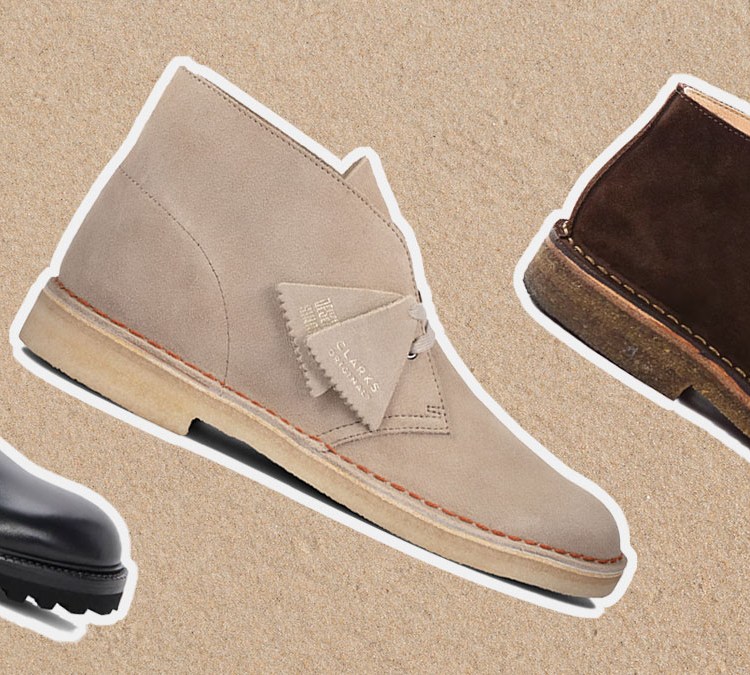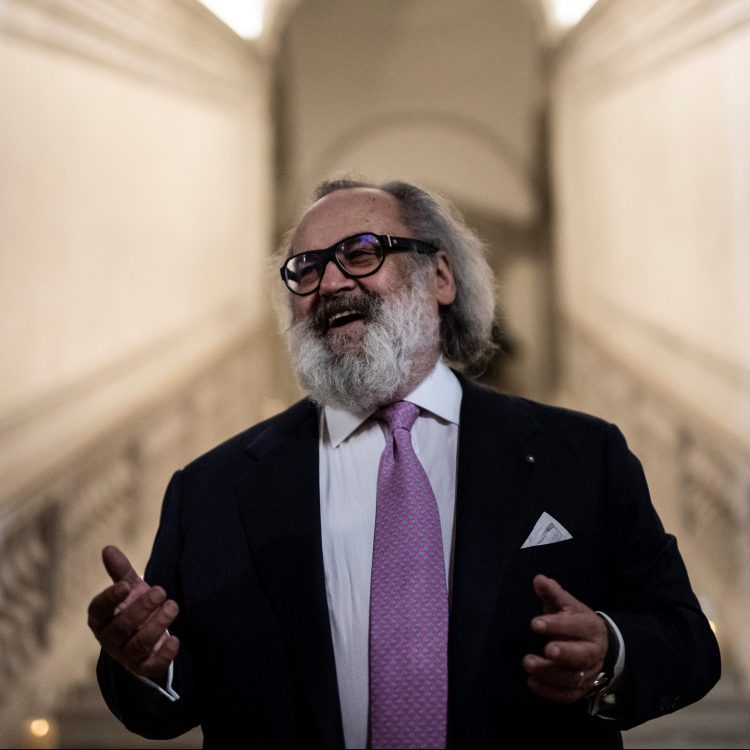When Donrad Duncan left dinner at New York’s The Commissary wearing a fancy olive suit, I half expected him to hop on a bike and pedal off into the sunset.
Why? The suit he was wearing — a product he designed in collaboration with Dockers — was built precisely for movement, whipping around town on a single-speed commuter included.
“Yes, I could bike home in this,” he told me at a dinner celebrating the launch of his 17-piece capsule collection with the iconic American sportswear brand. “This material that we used for this suit has stretch [technology] and water repellency.” That material — along with the suit’s tapered leg, which keeps trousers from getting caught in a wheel spoke — aren’t gimmicks or an athleisure-trend cash grab for Duncan, though. They represent his personal ethos on menswear.
“Other people term what we do as athleisure, but we don’t really see it as athleisure,” Duncan explained. “It’s based on health and our consciousness about how we move and how we live.”
Traditionally, designers have cut suits for a static frame. Meaning: they look good when you’re standing at a podium, but don’t always take into account how the shape of your body (and subsequently, your clothing) alters and reforms when you, say, bend over, sit down or break into an impromptu sprint to catch a train.
It’s a tradition that made sense as recently as, say, 20 or 30 years ago, when established barriers between office life and out-of-office life were more rigid. But times are changing. Men in suits ride bikes now. Offices have ping-pong tables and living rooms in lieu of cubicles and boardrooms. The man of 2016, then, needs a suit that’s equipped to handle the natural demands of his day. And Duncan is at the fore of a new school of designers targeting that man.
After working for brands like Victorinox and Tommy Hilfiger for 15 years, Duncan founded EFM (née Engineered for Motion) in 2014. The brand is one of the few menswear labels to snag the Rising Star Award from Fashion Group International, and it all owes to its founder’s no-nonsense, lightweight, utility-focused approach to fashion. But there’s a significant difference between EFM and many other brands trying to wed technical performance with old-school aesthetics.
“Men’s tailoring is important to us as well,” Duncan said. “When you think of menswear, you can’t just speak of athletic wear.” You have to stay true to the hallmarks of great formal design, as well. Accordingly, many of EFM’s pieces are informed by the silhouettes and details of classic tailoring. E.g., his blazers come without the rigidness of their predecessors, but still provide the same shape. He achieves this by using technical and “stretch” fabrics whenever possible; if they can’t be implemented into the actual base of the garment, he’ll subtly add them into the seams to provide a wider range of motion you might not realize is there until you need it.
It’s a philosophy that pairs beautifully with Dockers, a 30-year-old brand probably best known for the comfort of their signature khakis. You’ll find more than dad pants here, though, with suiting, sweaters, a puffer vest and a raincoat all among the collection. With prices ranging from a $125 woven button-down shirt to a $395 peacoat, the line has already attracted celebrity fans in Giants footballers Victor Cruz and Rashad Jennings, as well as entertainer Leslie Odom Jr.
Everything is available at Dockers.com and SaksFifthAvenue.com if you care to join them.
This article was featured in the InsideHook newsletter. Sign up now.

